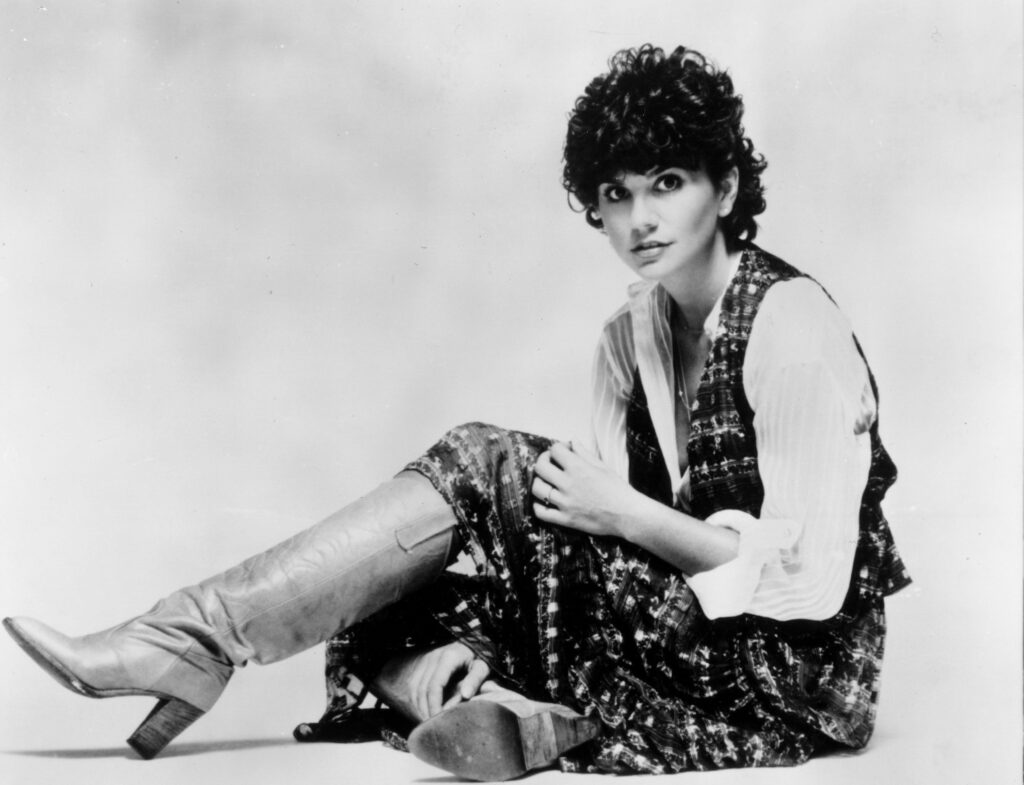
“All My Life” is the sound of love finally arriving without urgency—two voices meeting in patience, trust, and the quiet grace of having waited long enough.
When Linda Ronstadt released “All My Life” as a duet with Aaron Neville in 1989, it felt less like a pop event and more like a long-held breath being released. This was not young love racing toward the future. It was mature love standing still, looking back, and realizing that everything—every wrong turn, every disappointment—had been a kind of preparation. Few songs capture that emotional perspective with such clarity and restraint.
Let’s establish the key facts first, cleanly and precisely. “All My Life” was written by Karla Bonoff and recorded by Linda Ronstadt and Aaron Neville for Ronstadt’s album Cry Like a Rainstorm, Howl Like the Wind, released in October 1989 on Elektra Records. Issued as a single later that year, the song achieved remarkable success: it reached No. 11 on the Billboard Hot 100, rose to No. 1 on the Billboard Adult Contemporary chart, and won the Grammy Award for Best Pop Performance by a Duo or Group with Vocal in 1990. These achievements mattered not because they revived careers, but because they confirmed emotional authenticity could still resonate widely at the end of a loud decade.
By 1989, Linda Ronstadt was already a legend—one of the most versatile and respected voices in American music. Aaron Neville, with his unmistakable tremolo and deep soul roots, brought a contrasting vulnerability that felt almost fragile beside Ronstadt’s clarity. The pairing could have felt calculated. Instead, it felt inevitable. Their voices do not compete. They lean into each other.
Musically, “All My Life” is built on understatement. The arrangement is spacious, almost hushed, allowing every breath to matter. Piano and strings provide warmth without weight. Nothing distracts from the conversation happening between the two voices. This restraint is essential, because the song’s power lies not in melody alone, but in timing—the way phrases are held, released, and shared.
Lyrically, the song is about recognition rather than discovery. The narrator does not fall in love suddenly. Instead, she realizes that love has been approaching her for years, quietly, patiently, waiting for readiness. Lines about searching and waiting transform longing into meaning. Love here is not rescue; it is arrival. And arrival only feels complete because of how long the road has been.
Ronstadt’s vocal is luminous but grounded. She sings with confidence earned through experience, never pushing emotion, never softening truth. Neville, by contrast, brings an exposed tenderness—his voice quivering at the edges, as if emotion itself might overwhelm it. Together, they create a perfect emotional balance: strength and fragility, assurance and wonder. It is rare to hear two singers listen to each other this closely.
The fact that “All My Life” was written by Karla Bonoff adds a deeper layer. Bonoff’s songwriting often centers on emotional honesty without ornament, and this song is among her most distilled works. Ronstadt had long been one of Bonoff’s greatest champions, and here that trust reaches full expression. The song feels less like interpretation and more like embodiment.
Within Cry Like a Rainstorm, Howl Like the Wind, “All My Life” serves as an emotional centerpiece. The album itself was a reflection on vulnerability, love, and resilience, and this song crystallized those themes for a broad audience. It also introduced many listeners to Aaron Neville in a new context, revealing his voice not just as soulful, but profoundly intimate.
With time, “All My Life” has only grown more affecting. Heard now, it feels like a song written for people who have lived long enough to understand that love is not always immediate—and that waiting is not failure. It speaks to those who once believed they were late to happiness, only to realize they arrived exactly when they were meant to.
This is not a song about romance as fantasy.
It is a song about romance as recognition.
In “All My Life,” Linda Ronstadt and Aaron Neville offer something rare in popular music: a love song without hurry, without illusion, and without regret. It reminds us that sometimes the most powerful words are not I love you, but I’ve been waiting—and now I understand why.